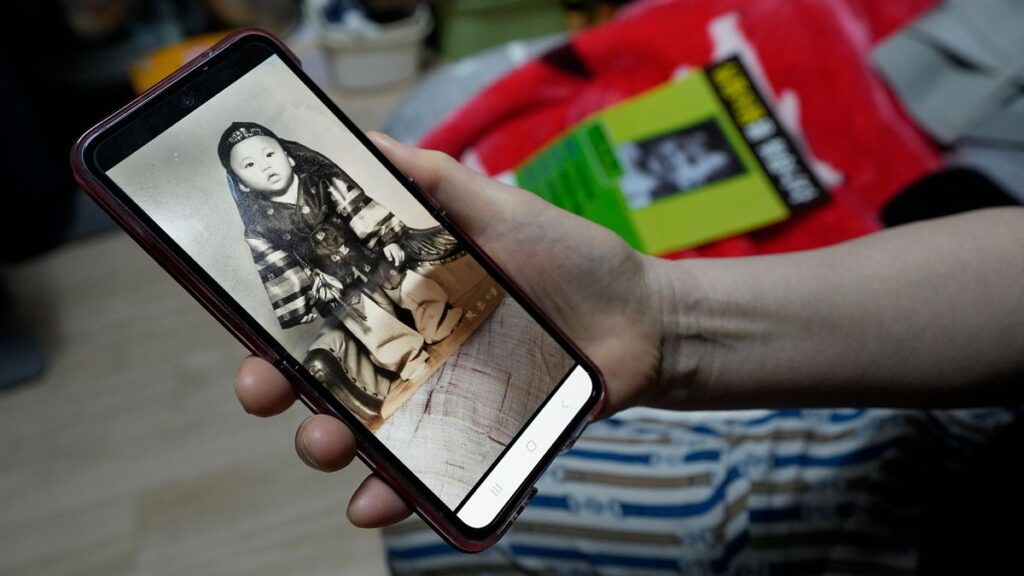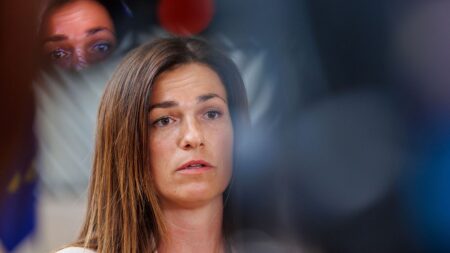Results of a government probe into Sweden’s adoption practices prompted its lead investigator to call for a halt to all international adoptions, domestic media reported.
“There have been irregularities in the international adoptions to Sweden,” Anna Singer, the head of the Swedish Adoption Commission, said during a press conference on Monday, during which she handed over the findings of the investigation to Social Services Minister Camilla Waltersson Grönvall.
“Today, with increased respect for children’s rights, we cannot accept the levels of risk that this activity is and has been associated with.”
During the probe, investigators have discovered confirmed cases of child trafficking and illegal adoptions in every decade from the 1970s to the 2000s.
The commission recommended that the Swedish state acknowledge violations of human rights and formally apologise to adoptees and their families.
It also proposed that Sweden gradually phase out its international adoption activity and introduce long-term support for adoptees and their families.
Minister Waltersson Grönvall said the Swedish government takes the findings very seriously.
“We have gained even more clarity in the fact that children and parents have been affected and harmed for decades within the framework of international adoption activities,” she said. It will now analyse the commission’s conclusions and proposals.
Adoptionscentrum, Sweden’s largest agency for international adoptions, is in favour of reviewing current practices, but questions a total ban.
“If the alternative for a child is to grow up in an institution, I think that growing up in a safe family in another country could be in the best interests of the individual child,” Margret Josefsson, vice-chair of the Adoption Centre, told public broadcaster SVT.
‘Stolen children’
The Adoption Committee was appointed in the autumn of 2021 following an investigation by the Swedish daily Dagens Nyheter (DN), which found examples of what journalists referred to as “stolen children” from South Korea, China, Sri Lanka and Chile, among others.
It revealed that thousands of children were adopted in Sweden with falsified background information.
While the children’s documentation stated that they had been abandoned or that their parents could not afford to keep them, the DN investigation showed that, in several cases, biological parents were robbed of their children.
This was confirmed by the commission as revealed on Monday. “Children have in some cases been adopted without the voluntary and informed consent of the parents. The best interests of the child have not always been ensured,” the report said.
In Chile and Colombia, mothers told of how their children had been abducted from day-care centres and hospitals. In some countries, these activities involved gangs consisting of hospital staff, lawyers, police and government officials.
The investigation by DN also found that Swedish authorities knew about child trafficking and this corruption in key adoption countries, but did not take action.
In its report, the commission stated that, in some cases, “Swedish actors were aware that irregularities had already occurred when they occurred, while in other cases it was discovered much later”.
Europe-wide shift
Sweden is the latest country to examine its international adoption policies after allegations of unethical practices.
The Netherlands last year announced it would no longer allow its citizens to adopt children from abroad after a scathing report on abuses was published in 2021, including reports of child theft, child trafficking and unethical actions by officials.
Meanwhile, Denmark’s only overseas adoption agency announced last year it was “winding down” its facilitation of international adoptions after a government agency raised concerns over fabricated documents and procedures which obscured children’s biological origins abroad.
Sweden’s neighbour Norway is conducting probes into past adoption practices regarding adoptees from South Korea. More than 6,500 children came from the Asian country to the Nordic country.
Meanwhile, the Belgian region of Flanders has also paused international adoptions following reports of malpractice with adoptions from Ethiopia, the Gambia, Haiti and Morocco.
Read the full article here

















